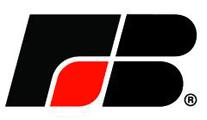
By American Farm Bureau Federation
By Chris Chinn
My husband, Kevin, and I farm in Northern Missouri with his parents and brother. We are the 5th generation of farmers in our family and we raise hogs, cattle, corn, soybeans and rye. We are also raising our children on our farm and clean water is important to us. Regardless of whether Environmental Protection Agency requires it, protecting our water is one of our priorities. We want to pass our farm onto the next generation so it only makes sense that we care for our natural resources in a responsible manner.
EPA’s proposed Clean Water Act rule will significantly affect our family farm. The proposed rule will expand the scope of “navigable waters” subject to Clean Water Act jurisdiction by regulating ditches, small and remote “waters” and ephemeral drains where water moves only when it rains.
Most of these areas look more like land than like “waters” and they are dry most of the year. This proposed rule means any ditch on your land will be regulated by the EPA, even if it only holds water one day a year. This will prohibit farmers from using land that is in or near a ditch unless they have a Clean Water Act permit.
Congress writes the laws of the land, not federal agencies. When Congress created the Clean Water Act, it clearly limited federal regulatory power to “navigable” waters. Congress did not intend to allow EPA and the Army Corps of Engineers to regulate farmland just because water occasionally flows across it. EPA should respect the limits set by Congress.
Some people are saying farmers and ranchers should have no concerns because we are “exempted” from the rule but this is not the case. The “normal farming and ranching” exemption only applies to a specific type of Clean Water Act permit for “dredge and fill” materials. There is also no farm or ranch exemption from Clean Water Act permit requirements for what the EPA would call “pollutants,” but I would call plant nutrients and protection products. This means under the proposed rule, many common and important practices like weed control and fertilizer spreading will be prohibited in or near so-called “waters” unless you have a Clean Water Act permit. This further complicates my situation due to the fact we frequently use recycled fertilizer from our hog barns.
Another startling fact is the EPA and the Corps have interpreted the word “normal” to mean only longstanding operations in place since the 1970s—not newer or expanded farming and ranching. Does this mean when we pass our farm onto the next generation’s hands that they will no longer be able to farm that land? This rule would appear to me to be detrimental to new and beginning farmers—exactly the type of farmer that many of us in agriculture have been working hard to support. That just makes no sense.
The proposed Waters of the U.S. ruling is a bad idea and it will cripple the ability of farmers and ranchers to continue to produce food. If the proposed rule prevails, it will be illegal for farmers to spray for weeds or apply fertilizer to their ground unless they have a permit. Routine tasks like building fences will even require permits if they will be built in or near a ditch. Many farming practices are time-sensitive and farmers cannot afford to wait on a government agency to process a permit.
Common sense goes a long way and it is desperately needed when looking at this proposed ruling. If dry farm fields and ordinary farm ditches and ponds are allowed to be regulated as “waters of the U.S.,” farming and ranching will suffer and so will those who depend on agriculture for food.
We need to make our voices heard. It is time to ditch the water rule. You can share your comments and make your voice count by visiting the FBAct Insider page: http://capwiz.com/afb/issues/alert/?alertid=63192396.
Chris Chinn formerly served as chair of the American Farm Bureau Federation’s national Young Farmers & Ranchers Committee. She is currently a “Faces of Farming and Ranching” spokesperson for the U.S. Farmers and Ranchers Alliance.
Disclaimer: Articles featured on Oregon Report are the creation, responsibility and opinion of the authoring individual or organization which is featured at the top of every article.

